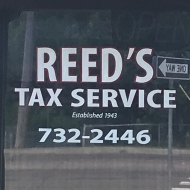Some retired federal employees of Tinker Air Force Base, the U.S. Postal Service or the Veterans Health Administration who paid into the old Civil Service Retirement System inadvertently could be paying state taxes that they don’t owe. Some retired federal employees of Tinker Air Force Base, the U.S. Postal Service or the Veterans Health Administration who paid into the old Civil Service Retirement System inadvertently could be paying state taxes that they don’t owe. Since the 2011 tax year, Oklahoma excludes from state taxes 100 percent of what those federal retirees paid into the Civil Service Retirement System in lieu of Social Security. The tax savings means those retirees can keep hundreds of dollars more a year, experts say. For example, a federal retiree whose pension totals $37,000 annually would save $836 under the state tax exclusion. Still, many retirees and tax preparers miss that fact, and continue to overpay hundreds of dollars in state taxes, said Sean Reed of Reed’s Tax Service in Midwest City. People can file an amendment on past returns to recoup overpayment, but only for the three previous years, he said. “If you owe the government, you owe them forever,” Reed said. “But if they owe you, it’s only for three years.” So affected state filers — potentially tens of thousands in Oklahoma — face an April 15 deadline to file amendments to their 2011, 2012 and 2013 tax returns. Last year, Newalla residents and Tinker retirees Tom and Tandye Kramer got back $4,112 after Reed filed amendments to three prior returns because of state tax overpayments made on Tom’s pension. “He’d said we might be able to get some money back, but holy moly, I never expected $4,000,” said Tandye Kramer, 56. The unexpected return, she said, was a welcome addition to the college fund of their daughter, who’s studying computer graphics at Rose State College. Kramer said the tax service she’d previously used had missed the state tax exclusion, which was phased in starting in the 2007 tax year. Reed isn’t surprised. “Most tax software doesn’t have a red line that pops up to ask whether you retired under the old system,” he said. “Preparers — or filers, if they’re doing it themselves — just have to know it.” The exclusion is spelled out in the tax booklets of the Oklahoma Tax Commission, but the agency doesn’t send paper forms to taxpayers if they’ve stopped using them, he said. Most federal employees hired on or after Jan. 1, 1984, automatically are covered under the Federal Employment Retirement Service and pay into Social Security. When they retire and draw their Social Security and pensions, they subtract their Social Security on their state income tax forms and the first $10,000 of their annual Federal Employment Retirement Service pension. The state tax exclusion for federal retirees under the Civil Service Retirement System was trumpeted by Rep. Gary Banz, R-Midwest City, and others. “Bottom line, it was a culmination of more than a decade of attempts by legislators, particularly in the Mid-Del area,” Banz said. When the federal government moved away from one retirement system to another, Banz said, it moved away from a defined benefit plan to a defined contribution plan, “which is a big part of the conversation now, for our state employees.”
Daily Q&A with Sean Reed Paula Burkes by Paula Burkes
Most unemployed taxpayers still must file returns
Q: If you’re unemployed, do you still have to file a tax return?
A: Usually. But often your tax burden will be lower, which can mean a larger refund or lower tax bill because of your lower taxable income.
Q: Do you still have to file, if you were unemployed for all of 2016?
A: If you have any income, including unemployment benefits and severance pay, you likely will need to file. However, if your income is below the filing requirement, you won’t. But even then, you still may want to file if there are credits for which you qualify.
Q: What is the “filing requirement?”
A: Generally, a taxpayers will need to file a tax return if their incomes exceed $10,350 (single filers under the age of 65) or $20,700 (joint filers under 65). Also, if you have $400 in self-employment income, you’re required to file a tax return.
Q: For what credits might a unemployed taxpayer qualify?
A: The Earned Income Tax Credit (EITC), Additional Child Tax Credit or the Savers Credit, to name a few. These credits can reduce what you owe or increase your refund.
Q: For what deductions do unemployed workers qualify? A: If you itemize, you may deduct job hunting expenses. But for the expenses to be deductible, job searches must be in the same field as the job you lost. PAULA BURKES, BUSINESS WRITER
